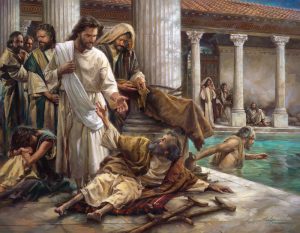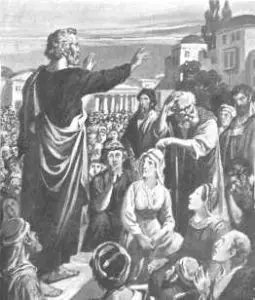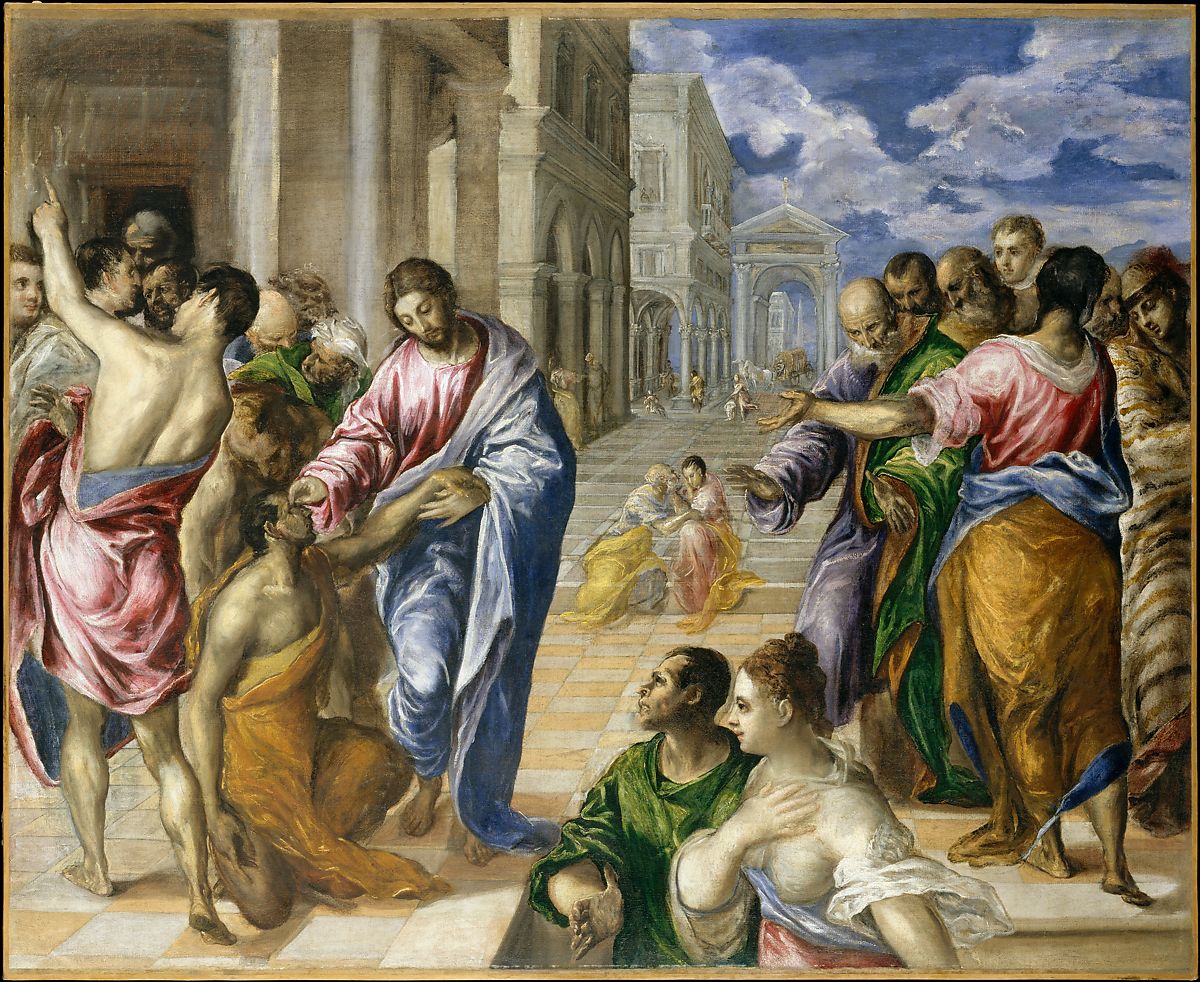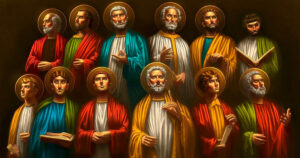Jesus worked miracles. The gospel accounts record a combined total of thirty- five specific supernatural occurrences performed by Jesus.[1] Additionally, there were many other supernatural works that were chronicled in general terms, without much detail:[2] For example:
Matthew 14:35-36 (NASB) And when the men of that place recognized Him, they sent word into all that surrounding district and brought to Him all who were sick; 36 and they implored Him that they might just touch the fringe of His cloak; and as many as touched it were cured. (emphasis added)
Incredibly, there were innumerably more wonders that were not chronicled:
John 21:25 and 30 (NASB) And there are also many other things which Jesus did, which if they *were written in detail, I suppose that even the world itself *would not contain the books that *would be written…30 Therefore many other signs Jesus also performed in the presence of the disciples, which are not written in this book. (emphasis added)
What are miracles?
 What are miracles? The Dictionary of the Bible offers this explanation:
What are miracles? The Dictionary of the Bible offers this explanation:
Modern theology defines miracle as a phenomenon in nature which transcends the capacity of natural causes to such a degree that it must be attributed to the direct intervention of God.[3] (emphasis added)
Some believe this direct intervention of God occurred because Jesus is himself, God. One popular apologist claims that the miracles Jesus performed, in fact, proved he is God:
Jesus’ deity is also proved by His miracles. His miracles are often called “signs” in the New Testament. Signs always signify something—in this case, that Jesus is the divine Messiah.”[4] (emphasis added)
Prolific Christian author, Herbert Lockyer, in his in-depth study on miracles, echoes the sentiments of many Christians when he says:
Miracles are also the insignia of Christ’s deity…[5] New Testament miracles attested the deity of Christ—God manifest in the flesh–and also the divine authority invested in the apostles.[6] (emphasis added)
What’s more, Baptist theologian and evangelical apologist, Bernard Ramm, posits that Jesus is God and that he performed miracles according to his own sovereignty:
The ability to perform miracles from his [Jesus’] own sovereign will is another indirect evidence for the deity of Christ. The prophets of the Old Testament and the apostles of the New could not perform the miraculous on their own but were totally dependent upon God. [On the other hand,] Jesus is presented in the Gospels as acting freely, personally, and sovereignly in the performance of miracles.[7] (emphasis added)
As widespread and entrenched as these beliefs may be, they are inconsistent with Jesus’ own testimony.
I can do nothing on my own initiative
One of the themes of Jesus’ ministry is that he could do nothing on his own:
John 5:30 (NASB) “I can do nothing on My own initiative.” (emphasis added)
John 8:28 (NASB) So Jesus said, “When you lift up the Son of Man, then you will know that I am He, and I do nothing on My own initiative… (emphasis added)
John 8:42 (NASB) Jesus said to them, “…I have not even come on My own initiative, but He [God] sent Me.” (emphasis added)

More specifically, after Jesus healed a lame man on the Sabbath, he stressed his dependence on God with regard to miraculous works:
John 5:19-20 (NASB) Therefore Jesus answered and was saying to them, “Truly, truly, I say to you, the Son can do nothing of Himself, unless it is something He sees the Father doing; for whatever the Father does, these things the Son also does in like manner. 20 “For the Father loves the Son, and shows Him all things that He Himself is doing; and the Father will show Him greater works than these, so that you will marvel. (emphasis added)
Jesus could only do the works that God the Father had shown him to perform. While Jesus knew there were even greater works on the horizon, he was unaware of the specifics of the miracles yet to come, for he said that the Father would show him the works (i.e., he hadn’t yet shown him). Truly, by his own admission, Jesus was entirely dependent on the Father.
The Father abiding in me does His works
Tragically, orthodoxy contradicts Jesus’ clear confession by crediting him, and not the Father, as the source of the miraculous deeds. But Jesus consistently says it was the Father who was performing His works:
John 14:10 (NASB) “Do you not believe that I am in the Father, and the Father is in Me? The words that I say to you I do not speak on My own initiative, but the Father abiding in Me does His works. (emphasis added)
In other words, Jesus was the human agent through whom God worked. The Oxford Companion to the Bible actually incorporates agency in its definition of miracles and their source:
A miracle is an extraordinary event, perceived to be the result of the direct, purposeful action of a god or the agent of a god.[8] (emphasis added)
An agent is described as one who has been “authorized to act for or in the place of another.”[9] In Hebraic terms, the agent or the “one sent” is called the shaliah. [10] The word comes from the verb shelach which means to send. James McGrath, professor and New Testament scholar explains:
Agency was an important part of every day life in the ancient world. Individuals such as prophets and angels mentioned in the Jewish Scriptures were thought of as ‘agents’ of God. And the key idea regarding agency in the ancient world appears to be summarized in the phrase from rabbinic literature so often quoted in these contexts: “The one sent is like the one who sent him.” [11] (emphasis added)

Indeed, Scripture repeatedly speaks of Jesus as the one sent by God to do the Father’s will and accomplish His works. The miracles provided proof of this:
John 5:36 (NASB) “But the testimony which I have is greater than the testimony of John; for the works which the Father has given Me to accomplish—the very works that I do—testify about Me, that the Father has sent Me. (emphasis added)
This principle of Christ’s agency is evident in a confrontation Jesus had with certain Jews who pressed him to know whether or not he was the Christ. Jesus cited the works as proof of his Messiahship:
John 10:24-25 (NASB) The Jews then gathered around Him, and were saying to Him, “How long will You keep us in suspense? If You are the Christ, tell us plainly.” 25 Jesus answered them, “I told you, and you do not believe; the works that I do in My Father’s name, these testify of Me. (emphasis added)
To do something in another person’s name means that they have given you the power and authority to execute the assignment. As one clergyman states:
Doing something in someone else’s name has a distinct legal meaning that is the same under our law as well as Hebrew, Greek, and Roman law…If you appoint someone to act in your name, it means that they can act as your agent within the restrictions you impose.[12]
Thus, when Jesus said that he performed the works in his Father’s name, he was crediting God the Father, not himself, as having authorized and empowered them. The works he performed corroborated his claim to be sent by God, that is, to be God’s agent.
First century Jews who witnessed Jesus’ miracles firsthand understood Jesus to be God’s agent and viewed the signs he performed as validation that he had been sent by God. Take Nicodemus, for example:
John 3:1-2 (NASB) Now there was a man of the Pharisees, named Nicodemus, a ruler of the Jews; 2 this man came to Jesus by night and said to Him, “Rabbi, we know that You have come from God as a teacher; for no one can do these signs that You do unless God is with him.” (emphasis added)
Jesus, a man attested to you by God

Lest we dismiss Nicodemus’ observations by saying that he was simply unaware that the rabbi from Nazareth was actually God, let’s hear from someone anointed to speak on God’s behalf. On the day of Pentecost, Peter, under the inspiration of the Spirit,[13] began his sermon by saying:
Acts 2:22 (NASB) “Men of Israel, listen to these words: Jesus the Nazarene, a man attested to you by God with miracles and wonders and signs which God performed through Him in your midst, just as you yourselves know (emphasis added)
If there was ever a time to reveal that Jesus was God incarnate, this would have been it! But that’s not what Peter preached, not on that day nor on any other day for that matter. Instead, Peter preached that the miracles performed by God proved that He had made Jesus the Nazarene both Lord and Christ.[14]
Peter is, of course, consistent in his God-given message. When he preached to Cornelius and his household about the Christ, he offered this explanation:
Acts 10:38 (NASB) “You know of Jesus of Nazareth, how God anointed Him with the Holy Spirit and with power, and how He went about doing good and healing all who were oppressed by the devil, for God was with Him. (emphasis added)
Jesus was able to perform wondrous works, not because he was God, but because God was with him.
Further evidence that the miracles served to prove Jesus is the Messiah is found in an exchange between Jesus and John the Baptist. The prophet had been imprisoned by King Herod, and his dire circumstance caused him to question if Jesus really was the Lamb that takes away the sins of the world:[15]
Matthew 11:2-6 (NASB) Now when John, while imprisoned, heard of the works of Christ, he sent word by his disciples 3 and said to Him, “Are You the Expected One, or shall we look for someone else?” 4 Jesus answered and said to them, “Go and report to John what you hear and see: 5 the blind receive sight and the lame walk, the lepers are cleansed and the deaf hear, the dead are raised up, and the poor have the gospel preached to them. 6 “And blessed is he who does not take offense at Me.” (emphasis added)
In response to John the Baptist’s inquiry, Jesus offered the miracles as proof that he was indeed the expected one, that is, the Christ (Messiah).
Another scenario that helps us understand the purpose behind the miracles occurred during the Feast of Booths when the Jews were arguing as to whether or not Jesus was the Christ:[16]
John 7:31 (NASB) But many of the crowd believed in Him; and they were saying, “When the Christ comes, He will not perform more signs than those which this man has, will He?” (emphasis added)
Those who believed in Jesus viewed the miracles he performed as affirmation that he was the Christ, not that he was God.
That you may believe Jesus is the Christ
The passages we have reviewed are in stark contrast to post-Nicene orthodoxy which views the miracles of Jesus as proof that he is deity. Ironically, the gospel of John, which many incorrectly claim was written to prove Jesus is God, was actually written so that we might believe Jesus is the Christ, the Son of God:
John 20:30-31 (NASB) Therefore many other signs Jesus also performed in the presence of the disciples, which are not written in this book; 31 but these have been written so that you may believe that Jesus is the Christ, the Son of God; and that believing you may have life in His name. (emphasis added)
Do we believe that God the Father worked through Jesus to accomplish His miraculous works? Or do we wrongfully credit the miracle worker as the power behind the supernatural? Do we believe the miracles prove that Jesus is God as orthodoxy demands? Or that he is the Christ sent by God as the Scriptures declare? What do you believe?
[1] Larry Richards, Every Miracle in the Bible, (Nashville, TN: Thomas Nelson Publishers, 1998), p. 198.
[2] For example, in Matthew’s gospel alone: Matthew 4:23-24; 8:16; 9:35; 12:15; 14:14, 35; 19:2; 21:14.
[3] John L. McKenzie, Dictionary of the Bible, (New York: Macmillan Publishing Company, 1965), p. 578.
[4] Dr. Ron Rhodes, “Is Jesus God,” Answers In Genesis, December 5, 2014, accessed 10-30-19. https://answersingenesis.org/jesus-christ/jesus-is-god/is-jesus-god/
[5] Herbert Lockyer, All the Miracles of the Bible, (Grand Rapids, MI: Zondervan, 1961) p. 14.
[6] Ibid, p. 25.
[7] Bernard L. Ramm, An Evangelical Christology, (Vancouver, B.C.: Regent College Publishing, 1999), p. 45.
[8] The Oxford Companion to the Bible, Bruce M. Metzger, ed. (New York: Oxford University Press, 1993), 519.
[9] “agent,” Merriam Webster Dictionary, accessed 06-16-19, https://www.merriam-webster.com/dictionary/agent
[10] There a numerous spelling variations: shaliach, saliah, salah, etc.
[11] James F. McGrath, The Only True God: Early Christian Monotheism in its Jewish Context, (University of Illinois Press, 2009) p. 14.
[12] Ken Collins, “What does it mean to do things in Jesus’ name?” Rev. Ken Collins’ Website, accessed 11-01-19, https://www.kencollins.com/answers/question-34.htm
[13] Acts 2:1ff.
[14] Acts 2:36.
[15] John 1:29-34.
[16] John 7:3-4, 11-ff



